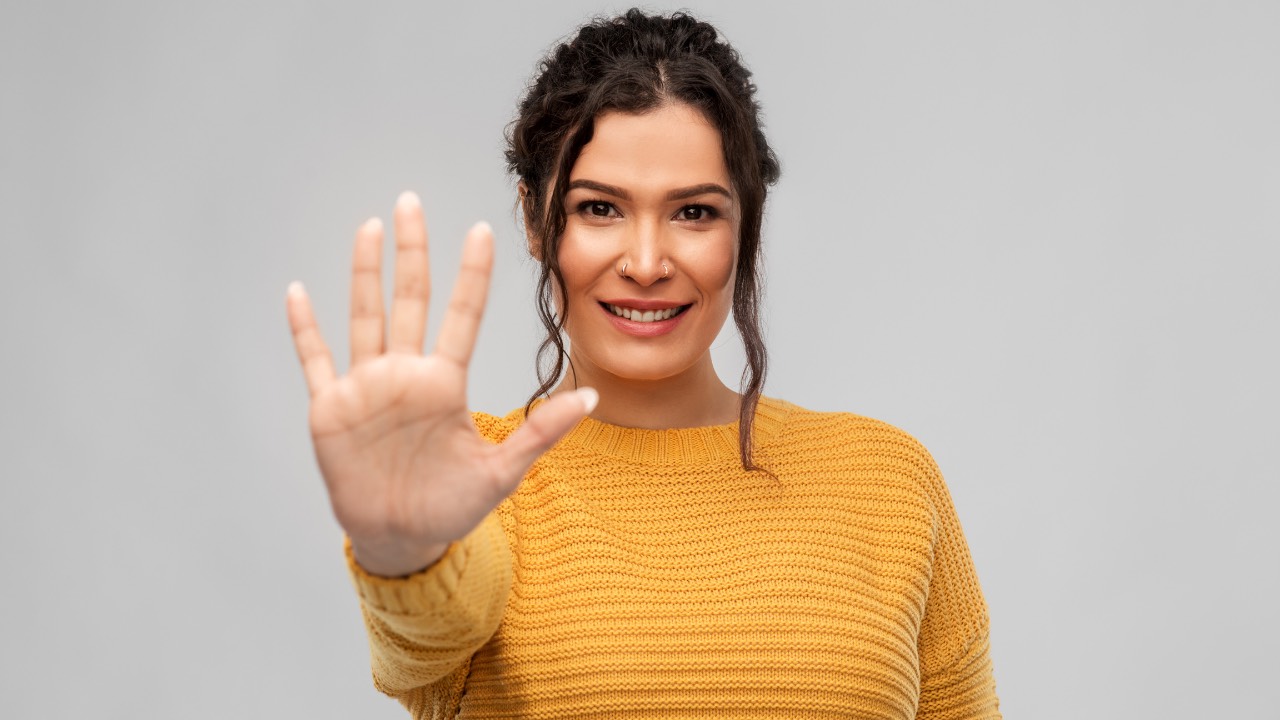The Art of Becoming: How to Reinvent Yourself Without Losing Yourself
Sep 21, 2025
You look around and realize you want something different—maybe it's your relationship with alcohol, maybe it's your career, maybe it's how you spend your time or who you spend it with. The desire for change feels urgent and real, but so does the fear: what if you change too much? What if you lose the parts of yourself that you actually like?
The pressure to "reinvent yourself" is everywhere, especially in midlife, but most transformation advice asks you to shed your entire identity and start fresh. That's not just unrealistic—it's unnecessary and potentially harmful. By the end of this post, you'll understand that the most powerful transformations don't require you to become someone new, but rather to become more fully who you've always been underneath the layers of expectations, adaptations, and survival strategies that no longer serve you.
Your Core Self Has Been There All Along
The woman you are at your essence—your values, your natural way of seeing the world, your inherent strengths and preferences—didn't disappear when you started conforming to others' expectations or adapting to life's demands. She went into protective hiding, covered by layers of "shoulds" and survival strategies, but she never left.
Think about the times in your life when you felt most like yourself. What were you doing? How were you being? Who were you with? These moments of authentic alignment give you clues about your core self that exists independent of roles, relationships, or external circumstances. The goal isn't to become someone different—it's to clear away what's been covering up who you already are.
This is particularly important when considering changes like removing alcohol from your life. You might worry that you'll become boring, lose your fun personality, or turn into someone your friends don't recognize. But alcohol doesn't create your personality—it often masks it. When you remove the substance that's been dampening your authentic responses to life, you don't lose yourself; you find yourself more clearly.
Evolution vs. Revolution: Why Gentle Change Lasts
The all-or-nothing approach to personal transformation—quit everything, change everything, become a completely new person—rarely works because it's fighting against decades of neural pathways, relationships, and identity. Your brain is wired to maintain consistency, and dramatic changes trigger internal resistance that can sabotage your progress.
Sustainable transformation happens through evolution, not revolution. You honor the parts of your current life that are working while gently shifting the parts that aren't. You build on existing strengths rather than trying to develop entirely new ones. You work with your natural tendencies rather than against them.
This might mean gradually reducing alcohol while simultaneously increasing activities that naturally energize you, rather than going cold turkey and forcing yourself into a completely different lifestyle. It might mean keeping the social connections that genuinely nourish you while setting boundaries with relationships that drain your energy. The key is making changes that feel like natural extensions of who you already are, not dramatic departures from your authentic self.
Releasing What Was Never Really Yours
Much of what you think you need to "give up" to change was never authentically yours to begin with. The people-pleasing patterns, the perfectionist tendencies, the need to be everything to everyone—these are survival strategies you developed to navigate challenging circumstances, not core aspects of your personality.
When you start releasing these adapted behaviors, you might feel like you're losing important parts of yourself. But you're actually shedding costumes that have become so familiar you forgot you were wearing them. The relief that comes with dropping exhausting patterns often surprises women—they expect to feel diminished but instead feel liberated.
This process requires distinguishing between what serves your authentic growth and what served your survival. That nightly glass of wine might have helped you cope with overwhelm, but it's no longer serving your desire for clarity and energy. The automatic "yes" to every request might have helped you feel needed, but it's no longer serving your need for boundaries and authentic connection. Learning to release what was never really yours creates space for what is.
Integration: Weaving Your History Into Your Future
Healthy transformation doesn't require you to disown your past or pretend previous versions of yourself never existed. The woman who used wine to cope, who said yes to everything, who performed happiness even when struggling—she was doing the best she could with the tools and awareness she had at the time. Honoring her wisdom while evolving beyond her limitations is part of mature transformation.
Integration means taking the strengths from each phase of your life and weaving them into a more complete, authentic version of yourself. Maybe the people-pleasing phase taught you genuine empathy and consideration for others—qualities you want to keep while learning healthier boundaries. Maybe the high-achieving phase developed discipline and goal-setting skills that serve your current growth, even as you release the compulsive drive for external validation.
This approach prevents the internal war that happens when you try to completely reject parts of your history. Instead of fighting against who you've been, you appreciate the journey that brought you to this point of readiness for change. This self-compassion becomes the foundation for sustainable transformation rather than temporary rebellion.
Building Your Support Ecosystem for Authentic Change
Transformation happens in relationship, but not all relationships support authentic growth. Some people in your life are invested in keeping you the same because your growth challenges their comfort zone or forces them to examine their own choices. Others might support the idea of your growth but not understand what it actually looks like in practice.
Building a support ecosystem for authentic change means surrounding yourself with people who see and encourage your highest potential while accepting where you are in the process. This might include professional support from coaches or therapists who understand transformation, friends who are also committed to personal growth, and communities aligned with your evolving values.
It also means learning to be your own compassionate support system during the inevitable moments of doubt, setback, or temporary regression. Change is rarely linear, and having realistic expectations about the process—including patience for the messy middle phases—prevents you from abandoning positive changes when they don't happen as quickly or smoothly as you hoped.
The Paradox of Boundaries: Saying No to Become More You
One of the most challenging aspects of authentic transformation is learning to set boundaries—with other people's expectations, with old patterns, with activities and commitments that no longer align with your evolving priorities. Setting boundaries can feel selfish or harsh, especially for women who have been socialized to prioritize others' comfort over their own authenticity.
But boundaries aren't walls that keep others out; they're guidelines that help you stay connected to your authentic self while still maintaining healthy relationships. When you say no to wine at dinner parties, you're saying yes to feeling present and clear. When you say no to obligations that drain your energy, you're saying yes to activities that genuinely fulfill you.
The paradox is that boundaries often improve your relationships rather than damaging them. When you show up authentically—honest about your needs, clear about your limits, present for what you genuinely want to participate in—you offer others the gift of the real you rather than a performance of who you think they want you to be.
Creating Your Personal Transformation Philosophy
Rather than following someone else's blueprint for change, developing your own transformation philosophy helps ensure that your evolution feels authentic and sustainable. This means getting clear about your values, understanding your natural rhythms and preferences, and creating change strategies that work with your personality rather than against it.
Your transformation philosophy might include principles like "I change gradually rather than dramatically," or "I honor my need for community while staying true to my evolving values," or "I experiment with new ways of being while maintaining my core sense of self." Having these guiding principles helps you make decisions about which changes to pursue and how to implement them in ways that feel authentic.
This personalized approach prevents you from getting caught up in others' transformation stories that might not fit your circumstances, personality, or goals. What works for someone else might not work for you, and that's not a failure—it's information about what kind of approach will serve your unique journey.
The art of becoming isn't about dramatic reinvention—it's about gentle excavation of who you've always been underneath the adaptations and survival strategies that served their purpose but are no longer needed. Your transformation doesn't require you to lose yourself; it invites you to find yourself more clearly.
The woman you're becoming isn't a stranger—she's the fullest expression of who you've always been when you felt most authentic, most alive, most genuinely yourself. She has the same core values, the same fundamental way of seeing the world, the same essential strengths, but she's no longer hiding behind patterns that don't serve her growth.
This kind of transformation requires support, guidance, and a personalized approach that honors your unique journey while challenging you to grow. It's not about following someone else's blueprint—it's about creating your own path that builds on your existing strengths while gently releasing what no longer serves your authentic expression.
Ready to explore what authentic transformation could look like for your unique circumstances and goals? My coaching program is designed to support women through exactly this kind of evolution—honoring who you are while supporting who you're becoming. We work together to create changes that feel sustainable and authentic rather than forced or foreign to your essential nature.





